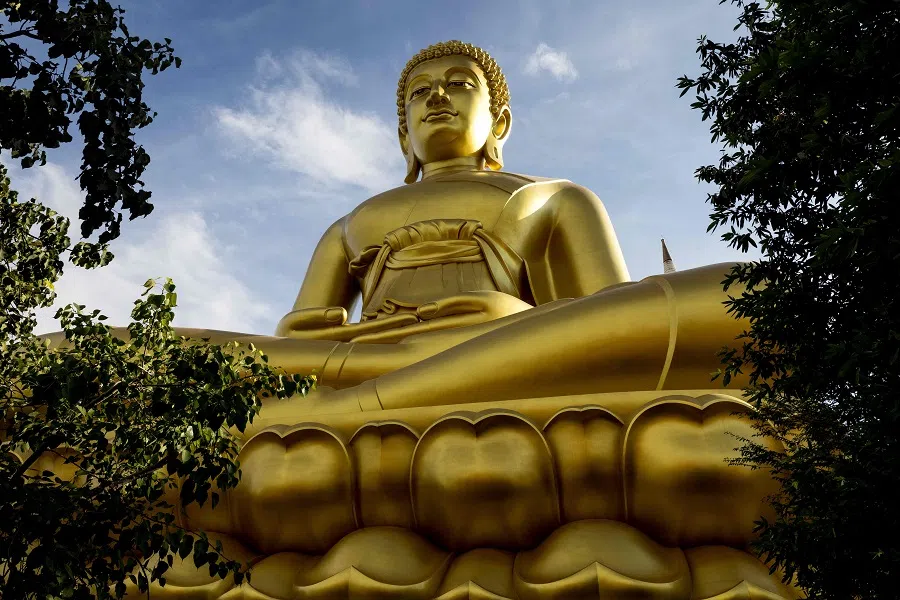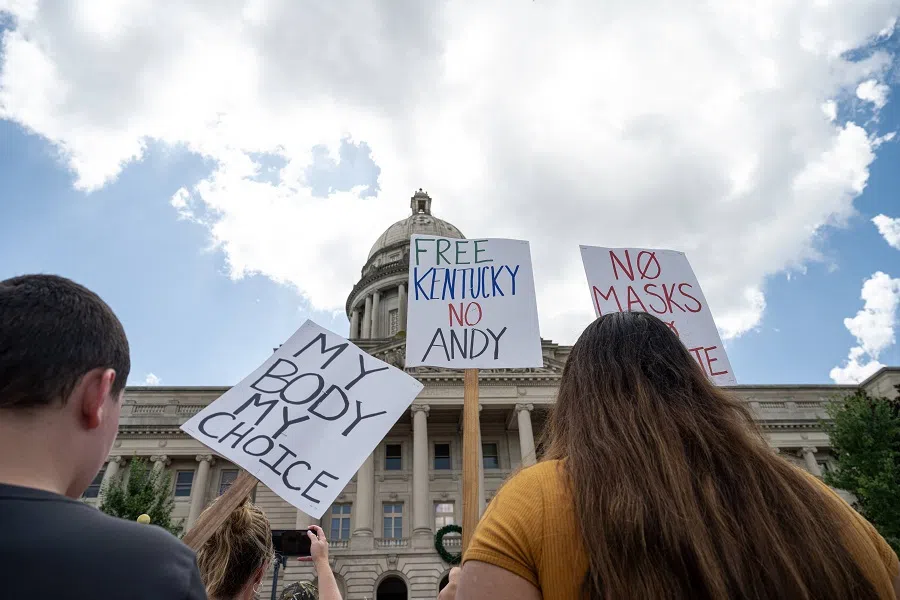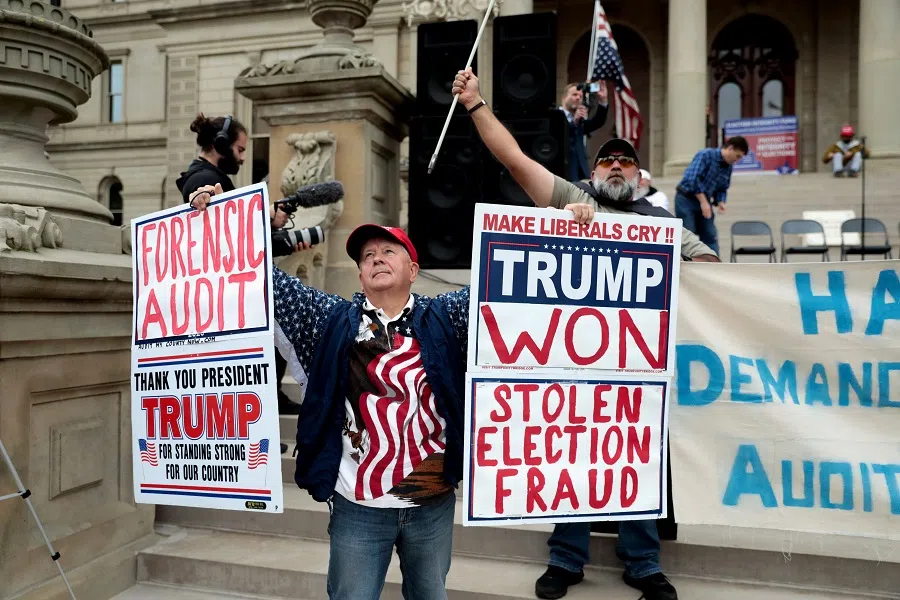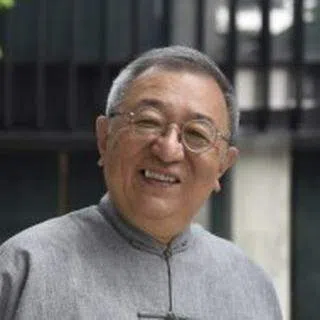Pandemic diary (Chapter 6): When democracy is despotic
Like many of us experiencing pandemic days, cultural historian Cheng Pei-kai spent the last two years living quietly. But that is just the outward appearance of calm. Inside, he seethes with indignation as he rues the politics of life and greed, the democracy that politicians tout and the world that will be changed yet oddly stay the same after Covid-19. Have we come to a stage where not even a pandemic can teach us the lessons we need to learn?

21 July 2020
Buddha tells us that everyone suffers and suffering is part of mortal life. Having experienced suffering, we would know that the Four Noble Truths - dukkha (suffering), samudaya (cause of suffering), nirodha (end of suffering), and marga (Noble Eightfold Path, the way to end suffering) - are "good truths" and the best path we should take.
However, while nirvana and transcendence of life and death sound like Buddha's most supreme ways, the average person is often unable to reach that level. Even ants fight for their lives, what more humankind, the most intelligent of earth's creatures. How can mankind be filled with great wisdom and think about achieving nirvana when he is still alive?
So man is forever pulled along by the ebbs and flows of life. The ancient sages first hoped to avoid conflict and pursue a transcendent life. Commoners could only aspire to preserve their lives in this chaotic world. The despicable ones, alas, would just deceive the masses with their so-called truth to fill the bottomless pit of man's desires.
Since ancient times, people have imagined what a perfect utopia would look like; there is the vision of Great Unity in the Liyun (礼运) chapter of the Book of Rites (《礼记》), Plato's utopia, and Tao Yuanming's Peach Blossom Spring, where freedom, democracy and universal love ruled, and all humans lived a happy and blissful life.
But if you flip through the heavy pages of history, you will realise that the so-called freedom in utopia refers to freedom in slavery, and that democracy is despotic and universal love is filled with brutality. Not only that, politics manipulates these things from behind - it is the hand behind every beautiful slogan, but also the tsunami that drowns people's happiness.

Politicians and their thirst for power
I do not understand why there is such an ugly side to human nature and why humans are so greedy to the point that they see money and power as the highest pursuit in life. It is not enough that they have earned billions of dollars; they want hundreds of billions, as if they can really stay alive and youthful forever, enjoying their riches until the earth dies.
I find it even more difficult to accept the fact that politicians are always trying to manipulate, exploit and control the lives of others, such that anyone who disobeys is painted into a corner. But, I do know that humans have "seven emotions and six desires", and that man's nature is very complex as well; it does not only possess spirituality, but is filled with animality and devilish sides. Sometimes, humans can even be worse than animals.
Perhaps man is not chasing after wealth to possess wealth, but rather to demonstrate his power and ability to arrogantly look down on others. The same goes for men possessing political power - they wish to compete with the gods in the heavens, incite the people to fight one another, force the people to obey them and even resort to using weapons. This is the norm for political movements from ancient to modern times, and whether in China or abroad.
Scholars who cannot agree with such ways of the world but who think deeply about the meaning of life can't help but ask: is power really so alluring? Does it really bring endless joy and boundless excitement like smoking heroin? Is it really so irresistible and addictive?

Regardless of whether we participate in politics, as long as we are alive, we will be affected by it. It is just an evil that we will face in life. All things, including birth, marriage and death; whether one can eat pork or civets; or whether we have to wear a mask outdoors, are all inseparable from politics.
During peacetime, people live stable and contented lives and couldn't care less about politics - they just pay their taxes and continue with daily life. But in the eye of the pandemic storm, when society is in shock and the US elections have entered a state of emergency, it's the best show for politicians.
'Chaotic democracy' at work
Trump has been adding fuel to the fire, dragging people into a wave of political struggle by inciting war among various states over whether masks should be worn. He even said that the coronavirus was nothing serious and should not get in the way of democracy and freedom. To safeguard the freedom of speech and assembly granted by the constitution, he refused to implement harsh measures to contain the pandemic and allowed the people to freely express their opinions, freely roam the streets, gather together and party at night clubs all in the name of true American democracy. In truth, the democracy that Trump advocates is "chaotic democracy" - it lets people vent their frustrations, fear and anger, and in turn, allows Trump to reap all benefits from the chaos.

Someone advocated "great democracy" (大民主) during the Cultural Revolution. There was a popular slogan among the Red Guards that went something like this: "When a good guy hits a bad guy, it's expected; when a bad guy hits a good guy, that's training; when a good guy hits a good guy, that's a misunderstanding; when a bad guy hits a bad guy, that is what he deserves." In any case, it was a democracy that consisted of fights and beating people up. In the end, the People's Liberation Army entered the city and captured all the Red Guards, enforcing a military rule.
I suspect that Trump is modelling his presidency after the Cultural Revolution-style chaotic democracy by adding fuel to the fire wherever he goes and plotting his way around, whether in secret or in the open. He would wish to station troops in various cities to exercise his power as president granted him by the constitution, to follow the path of President Lincoln in war to eliminate a bunch of "traitors" like Obama and Biden.
Politics is everyone's business - indeed, it is also true that power can be derived from it, and hence manipulate the direction society is headed. What worries me is, how can there be someone who peddles a truth he is unsure of (or does not even believe in), screams at the top of his lungs, and manipulates others into keeping such nonsense in mind, leading them down the road to death to satisfy his own perverted pleasure?
What devastates me even more is, why are the people blindly following such chaotic democracy, disregarding their personal safety, and denying the obvious death threat of the coronavirus? Why are they so adamant about not wearing masks but willingly sacrificing their lives for such a chaotic democracy?
Related: Cultural historian Cheng Pei-kai: The best antidote for surviving the pandemic | Cultural historian Cheng Pei-kai: The power of the individual during a pandemic | Cultural historian Cheng Pei-kai: Life and death are predestined, and wealth and poverty are heaven's arrangement | Pandemic diary (Chapter 4): The president who spread a political virus | Pandemic diary (Chapter 5): The huge difference between Hong Kong and American societies


![[Big read] When the Arctic opens, what happens to Singapore?](https://cassette.sphdigital.com.sg/image/thinkchina/da65edebca34645c711c55e83e9877109b3c53847ebb1305573974651df1d13a)


![[Video] George Yeo: America’s deep pain — and why China won’t colonise](https://cassette.sphdigital.com.sg/image/thinkchina/15083e45d96c12390bdea6af2daf19fd9fcd875aa44a0f92796f34e3dad561cc)